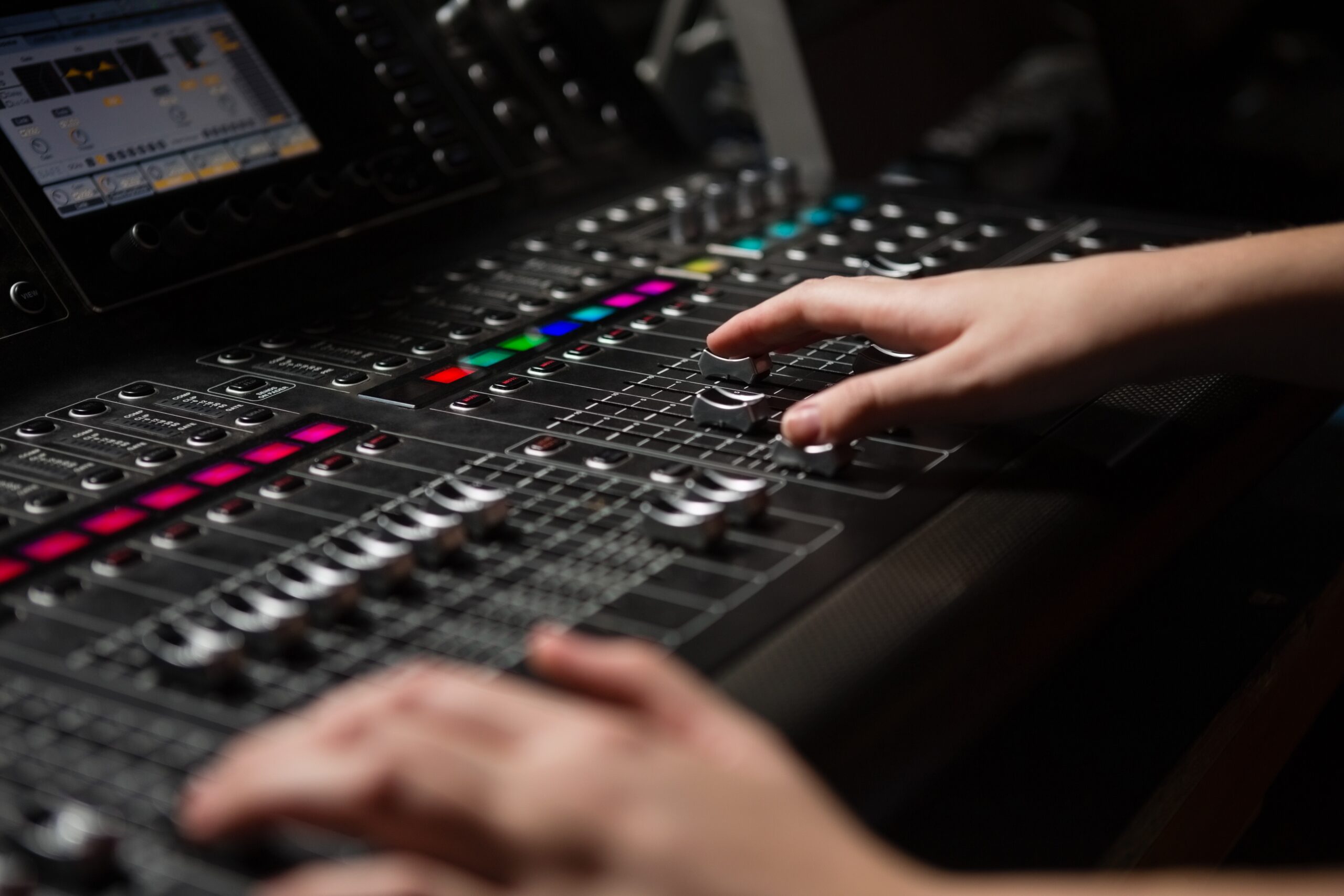Research Project (60 credit points)
In an ever-shifting and more complex creative industry, the need to source, analyse and process knowledge has never been more important.
Research is an essential skill in the toolbox for any creative practitioner wanting to have an extensive and rewarding career in a brave new world of opportunity and challenge.
The Research Project module enables you to collaborate with other creative cohorts and formulate life-long robust research practices. You will learn the essential skills necessary to investigate and synthesise information in order to develop informed conclusions and new and exciting practices.
The module will enable you to take a deep dive into your own specialist areas of interest to deliver a large research project. The project can be delivered in media that most closely align with your creativity, with outputs that could include a whole range of audio, visual or webspace artefacts.
Sound Engineering and Audio Production (60 credit points)
This is your Sound Engineering and Audio Production playground! We all have our specialisms, but have you ever thought how you can apply those skills in related fields? The key to your development is going through the ‘doing’ process in a number of scenarios and examining how you can use what you learned in your own practice.
Through a series of workshops and projects you’ll explore and enhance your processes and skills in these related areas. You’ll experiment and see how related competancies can be developed to increase your employability across the sound engineering and audio production sector: You might experiment mapping your mixing skills to sound design processes, or studio recording skills to location recording: you’ll work to personalise and apply these techniques to your own practice to enhance what makes you, you!
The key in this module is in the process and reflection, but assets related to your intended employability journey can be honed to completion for use in your ‘Creative Entrepreneurial Approaches’ module to show you at your very best.
Creative Entrepreneurial Approaches (60 credit points)
This module is designed to reflect the entrepreneurial nature of practices in the music and audio sector. Through appropriate negotiated research avenues, you will critically examine current ways of working most applicable to your own journey as a music industry professional, whether that’s as an employee, a business owner, or a freelancer with one or more audio/music related activities.
You’ll look for your place in the sector and work towards finding a home there during and after your studies by developing your subject and employability skills along with a relevant outward facing portfolio that considers you as a brand.
You’ll critically examine the work landscape to identify relevant professional opportunities during and after your studies to support your development, and, importantly, explore ways to monetise your talents. You’ll work on specific self-sourced or supplied industry facing projects and these will provide you with the opportunity to examine the skills needed in relevant key music sectors to help you thrive and survive.
In your ‘Practice’ module, you’ll explore and experiment with multiple related skills, and the relevant results of which can be finessed here and included in your work-facing portfolio, too. To give you the best chance to have long-term success you’ll have an assigned mentor from industry to give you a vital insiders perspective.
Ultimately you’ll form an output plan and will pitch for a ‘Confetti Employability Grant’ to help you with your next steps.







